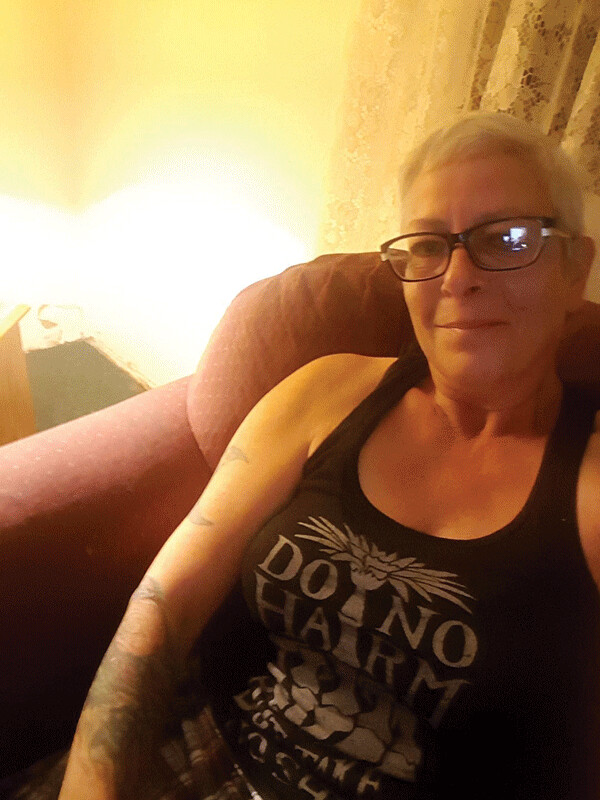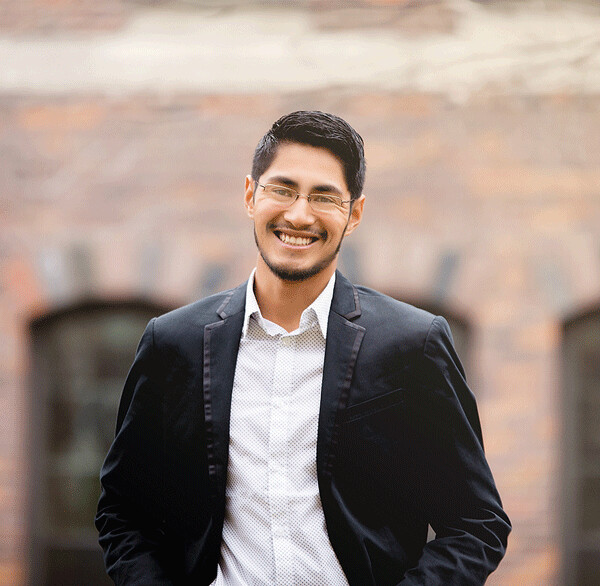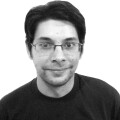News & Articles
Browse all content by date.
31st Annual Duluth Superior Pride Festival - 4th Annual Reader’s Voices of Pride
Welcome to our loudest and proudest issue of the Reader, this is a little annual segment we do this time of year, in honor of our local Duluth Superior Pride Festival. Our senior staff writer, Paul Whyte started Voices of Pride in 2014, with the intent to celebrate our local LGBTQA community, and to give members of the community a place to share their stories. I’m Jordan Bissell, Reader staff writer, and Paul a lotted me the joy of putting Voices of Pride together this year. As a fellow queer, it is my pleasure to say, “Happy Pride!” to everyone, and to introduce you to a few of our local LGBTQA community members who were gracious enough to share their experiences with us and our readers. First, we have Chris Homan, a veteran of the community who has contributed to our Pride Festival as Parade Director for many years, sharing wisdom about the history of our local Pride Festival. Next, we have Manilan Houle, a distinguished professional activist who tirelessly works towards political change. Last but not least, Garrett Pierce Passer, a fabulous actor, singer, drag queen, and store manager. Please enjoy their stories and respect the bravery it takes to be out and proud.

Chris Homan
Homan - There was a day when wearing clothing of the perceived opposite gender was enough for a queer person to be arrested, harassed, beat, raped and jailed by police. The 1969 Stonewall Riots were the result, and also the beginning of the annual Pride events that continue nationwide today. It’s another part of history that is not taught in schools. “Queer” used to be a dirty word, used against us. It is a word that we have taken back, removing the power from those who would use it to hurt us. Although I know there are some who still feel negatively about the word, that is why I am using it.
And while there are those among us that think everything is fine and safe now that marriage has been legalized for us, it just isn’t true. We saw the Orlando shootings, the deaths of our transgender sisters of color, and many other casualties of hatred. The rights to marry, be safe and treated like equal human beings are still being threatened every day. This is our reality.
We must stand together. ALL OF US.
I will say to you, what I was told. “Go to a meeting and pitch your idea/s.” That is what I did over 20 years ago. I asked, when I moved here from Minneapolis, “Why is there only a small, quiet march on the Lakewalk? Where is the Parade in the streets?” The committee said, “Great idea. You’re in charge.” There were only a handful of us. I knew nothing about running a parade. I mailed invitations. I hand-sewed little rainbow flags and got the support of Together for Youth to stop at each business along the route to ask if they would hang a flag supporting our Pride Parade. It was an incredible amount of work. People were scared of backlash and violence, and so I, ironically, asked for police presence to make sure people were safe. We had a rally at the Duluth City hall. It went off without incident, and we have been doing it ever since.
One young gay boy approached me after that parade and told me that this was the first time he had ever felt safe in his own city. We cried and we hugged, and that made all of the work worth it. The ripple effect. I went on to direct six more parades.
However, being a member of the Pride Committee is a thankless job in many ways, and I would urge you to consider this when bringing things to the table. Everyone there is volunteering their time for our community. We are all humans, and of course, there is always room for improvement.
Those of us who have been around for decades have been concerned that Pride is turning into a big, meaningless party, rather than a form of activism. We are concerned that there are no safe queer spaces anymore, with straight college students and bachelorette parties taking over our last refuges. And now we are about to lose the Main Club. Yes, times change. But history informs.
We must come together to help and protect each other, settle our differences in respectful ways. We NEED each other, our elders and our history. And we must not assume that it will all just be done for us, with no effort on our own parts. There are many ways to participate. Every year, volunteers are needed for the myriad events we now host; monetary donations are always welcome as well. But please, above all else, we need to love and respect one another, even when we disagree. We call it “Pride” for a reason.

Manilan Houle
Reader: How did you become the person you are today and when did you realize your LGBTQA status?
Houle: I wouldn’t say that I became who I am today at any singular point of my life. However, I was blessed to have people in my life who supported me before I could actually acknowledge to myself who I am. Being gay was something that I initially never imagined that I could acknowledge outside of my close circle of friends. Being gay (and actually saying it out loud and in public) was terrifying. Even in this day and age. While I “decided” to come out in the 7th grade only to a few close friends, it took the next year and the support of my foster family to be the place where I finally had to be honest with everyone that I knew. Over the years since, I have heard so many stories that are so similar to mine. Taking the first step is always the hardest step. But it is so important to do it…to claim who I am even in the face of adversity. Through all of my work from student activist to my work on Marriage Equality, I have had the opportunity to meet so many members of our community and share their joy and pain. Each story I heard I carry with me in my personal and professional life as I continue shaping my own path in the movement for equality of the entire LGBTQ community.
Reader: How are things for you now as an out LGBTQA person?
Houle: To be honest, being out is both good and at times difficult. I live in a world that celebrates and honors who I am and I acknowledge that I am very lucky to move in a world where I am relatively safe as young gay Native man. However, I am and will always be a queer person of color. And as a queer person of color, not only am I faced with prejudice for being gay but also for the color of my skin. Intersectional identities are often pushed to the margins even among a shared marginalized community. There are members of our community organizing to be more inclusive but there is more work to do. I know that together we can transform the world around us and make sure that people like me can not only be out but celebrated for our lives.
Being out is so incredibly freeing. Being out means that I can do the work that I love without fear of hatred and shame. While coming out was one of the scariest things I have ever done, today, I get to move through my work and my world with honesty and compassion without fear of “being outed” and all the shame that this brings. I am incredibly blessed and look forward to all the things that happen next.
Reader: What is it like being LGBTQA in the Twin Ports community?
Houle: As I have traveled throughout the country, people often ask me this question. And my answer is simple. The Twin Ports means family in its best sense. A close knit community that has continually welcomed me, this is where I will always call home. At times a complex community (as is true with any family), ultimately I have found that as a young gay Native man, the Twin Ports have welcomed me to grow and thrive. The community has done it’s best to wrap its arms around not only me but all of our members to raise up the next generation. I am constantly reminded that it takes an entire village for EVERYONE to thrive and I am grateful that the Twin Ports community wrapped its arms around me when I needed it most.
Reader: What does Pride Festival mean to you and what do you think makes it important to the community?
Houle: Pride means being present. Being present is the most important part of PRIDE. We are a community that will almost certainly face opposition and bigotry for the foreseeable future. Our allies will get louder but every day we will most certainly face hate but through our full presence at PRIDE we find self-acceptance.
And, too often to be honest, I still feel scared to talk about what Pride means to me personally. As a young Native kid, I spent several years wondering what was wrong with me, what had I done wrong, how do I make being LGBT go away. I happened upon my first Pride totally by accident. And I found, even then at that young age, a place to call home. Even if I wasn’t able to truly claim it at the time. Pride meant and continues to mean for me (for every LGBTQ Native youth out there) a place that I am finally welcomed for my whole self. Without exception. And, I am dedicated to doing whatever it takes to make sure that no one ever feels like they can’t find their voice. Isn’t that what Pride means?

Garrett Pierce Passer
Reader: How did you become the person you are today and when did you realize your LGBTQA status?
Passer: I owe a lot of the confidence and general fearlessness to my best friend from home, Tedd. He was barely an 8th grader (and I was in 10th and had not come out yet), when he decided to say, “f*ck the haters,” and make the courageous decision to come out in a small, southern Minnesota town that wasn’t too keen on the idea of anyone on the LGBTQA spectrum. As soon as that happened, he made a lasting impression on me and my general insight to try and muster up the confidence to do something that courageous. There were many trying times, and there still are with people having a problem with my happiness and overall confidence, but to kind of adopt that, “f*ck the haters,” philosophy has done everything for my overall well being.
I realized I was full on homo probably at the age of 6 when I used to binge watch “Saved By The Bell” with my two older sisters and PROCLAIM that Zach Morris was the prettiest/cutest human on the show and that I would one day marry him. A lot has changed since then obviously, but I will never take back those feelings of carelessness, as they definitely helped pave the way to accepting that I have always been attracted to guys since day one.
Reader: How are things for you now as an out LGBTQA person?
Passer: Whenever asked any similar question to this, I often reply, “being gay is the best thing that has ever happened to me.” I feel like since I had to withstand the constant ridicule and cruel remarks about my person growing up, that I would never be able to do some of the things I do today without those experiences. Sure, they sucked a lot and there were many hard days, but the way I’m able to use my self expression and truly tap into the real, genuine human that I know I am, is the most rewarding feeling to come out of some of the toughest hardships. Some days are still harder than others when I’m almost always cat-called/harassed from across the street, or CONSTANTLY STARED AT from someone in a car, because they simply can’t HANDLE the ferocity that I am bringing by STRUTTING down the sidewalk, BUT that being said, I would much rather live this life as a QUEEN B*TCH individual, than some run of the mill pedestrian, easily lost in a crowd of no more than 20 people.
Reader: What is it like being LGBTQA in the Twin Ports community?
Passer: Eh, it’s alright. No, I’m totally kidding, it’s better than alright, but it’s nothing exceptional. There is a large enough community of like minded individuals up here to really feel safe and a part of something really great and welcoming, but at the same time it’s almost not big enough? The Twin Ports are progressing for sure, but I feel like it almost isn’t progressing fast enough? Maybe I’m just extremely impatient or something, but I don’t know, it’s just how I feel. But for real though, it could be worse, it could actually be a lot worse. I’ve met some pretty spectacular humans through the LGBTQA community up here and it’s all because there IS a sense of community up here, bottom line. So that’s pretty awesome.
Reader: What does Pride Festival mean to you and what do you think makes it important to the community?
Passer: Pride Festival means everything. It means community. It means welcome. It means being unapologetically me/you because why would I or anyone like minded have to apologize to ANYONE for simply expressing who we truly are? And everyone who partakes or supports or whatever has the same general consensus it seems like and that’s what’s truly beautiful and mesmerizing, to be honest. Pride Festival is important to the community because all are welcome. If you want to be at Pride, then HELL YEAH, let’s celebrate. No one partakes in Pride events to have a BAD time, that’s just silly. Everyone is so happy and free and it’s just so damn beautiful. AND FUN.
| Tweet |


